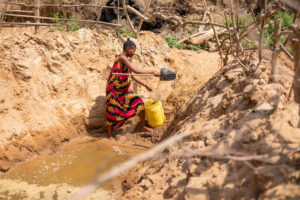Air pollution in Africa is more deadly than previously thought, two recent studies have confirmed. The continent, which contributes little to greenhouse gas emissions – just 4% of the world’s greenhouse gases for 18% of the planet’s population – might see itself as a haven of clean air, but not in the cities.

For a majority of people, ‘climate change’ is synonymous with ‘pollution’ and vice versa.
A survey by Health Effects Institute, headquartered in the US, shows that the mortality rate linked to air pollution is 155 deaths per 100,000 people in sub-Saharan Africa. This is almost double the world average of 85.6 deaths per 100,000 people. In urban centres, the figure is actually double the world figure.
If ‘killer’ pollution is primarily urban – as demonstrated in a study by Clean Air Fund, a British NGO focusing on cases in Accra, Lagos, Johannesburg and Cairo – rural Africa cannot relax.
Premature mortality
First, pollution clouds do not stop at the borders of the cities. Second, population experts predict that by 2060, two-thirds of Africans will live in urban areas. Furthermore, by 2100, five of the world’s ten largest megacities are expected to be located in Africa.
For years, studies have warned that air pollution has caused premature deaths of Africans. According to some sources, the deaths already amount to over a million.
Even though the continent has the reputation of being less industrialised, the study ‘Clean Air Fund’ underlines the impact of the lack of efficient public transport, the burning of waste in the open air and the presence of mining and oil industries near the urban centres.
Costly pollution
This plague is not only lethal but also economically difficult for the survivors, whose increasingly precarious health leads them to frequent work stoppages. All in all, the Health Effects Institute report predicts that “the financial costs of air pollution will increase sixfold by 2040”. A city that reduces CO2 emissions is therefore a city that saves money.
Curbing pollution must be on the Cop27 agenda, which will be held this November in Sharm-el-Sheikh, Egypt. This can be done by focusing on collective solutions, such as investment in public transport, or individual solutions like the use of eco-compatible stoves by households. Diplomatic emergencies and political obsessions must not pollute the environmental discourse.
Source: The Africa Report















